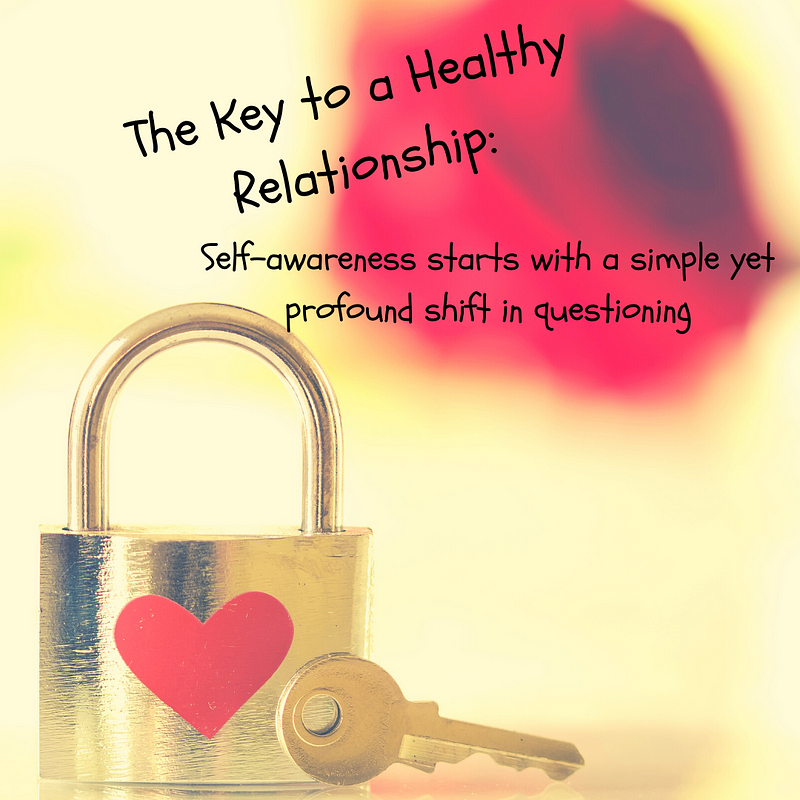# Cultivating Self-Awareness for Healthier Relationships
Written on
Chapter 1: Understanding Self-Awareness
Self-awareness begins with a fundamental change in how we question ourselves.

Consider the popular advertisement featuring Jake from State Farm, portrayed by Kevin Miles. In the ad, he assists a married man, played by Justin Campbell, in securing affordable insurance during the late hours. The man's wife, played by Melanie Deanne Moore, snatches the phone from her husband in disbelief, sarcastically asking, “What are you wearing, ‘Jake from State Farm?’”
Jake responds, “Uh, khakis.”
What makes this commercial amusing? It’s the wife’s immediate assumption of infidelity, contrasting with the audience's awareness that her husband is actually excited about insurance. This scenario parallels our relationships, where we often jump to conclusions based on our internal narratives. The cornerstone of fulfilling relationships, whether they are romantic or professional, is self-awareness.
So what does it truly mean to be aware of our inner dialogues and triggers?
Psychologist and author Tasha Eurich emphasizes that the essence of self-awareness lies in changing our approach to questioning: focus on WHAT rather than WHY.
For instance, instead of the fictional wife’s accusatory thoughts—“Why isn’t my husband in bed with me? Why doesn’t he love me?”—she could reframe her questions to be more constructive. She might ask:
“What is prompting my husband to speak softly in the night? What insights can I gain from observing his body language? What lessons can I derive from this encounter? What can I learn about myself based on my feelings?”
This transition from “why” to “what” transforms a mindset of victimhood into one of growth and understanding, shifting from feelings of inadequacy to a sense of purpose.
The most crucial relationship is the one we cultivate with ourselves. It is essential to comprehend our reactions to others. Relationships serve as reflective mirrors, revealing our true selves. When we find ourselves in conflict with someone we care about, it’s a chance to discover more about who we are. If someone makes us uncomfortable, we should reflect: “What is this sensation teaching me?”
By focusing on WHAT instead of WHY, we foster personal growth, alleviate anxiety and depression, and strengthen our internal guidance. We cannot control others, but we can work on ourselves. As we attain greater self-awareness, our relationships naturally become healthier.
The first video, Let's Talk Love | Building Intimacy Through Relational Self-Awareness with Dr. Alexandra Solomon, delves into the importance of understanding oneself to nurture deeper connections in relationships.
The second video, Relational Self-Awareness: The Key to Navigating Modern Love | Alexandra Solomon | TEDxSanJuanIsland, discusses how self-awareness is crucial in navigating the complexities of contemporary relationships.
Chapter 2: The Importance of Shifting Perspectives
Understanding and adjusting our perspectives can significantly enhance our emotional intelligence and relational dynamics.